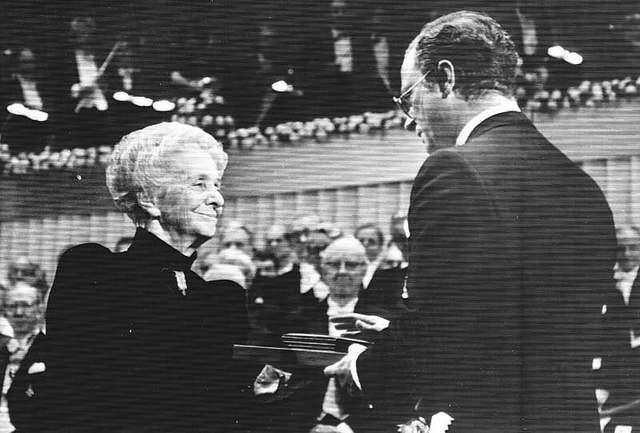SCHOOL – Rita Levi-Montalcini at graduation exams, her niece: imperfection is the engine of the world

Italian scientist Rita Levi-Montalcini, who was awarded a Nobel Prize in Medicine in 1986, used to recount that “imperfection has always allowed continuous mutations of that marvelous yet imperfect mechanism which is the human brain.” This thought forms the basis of her autobiography, titled In Praise of Imperfection. Published in 1987 it retraces the significant events of a life dedicated to study and science. An exemplary testimony, relevant once again these days due to Italian Ministry of Education’s decision to include an excerpt from it in this year’s high school graduation exams, which started last week.
“It’s an essential book to understand that Nobel laureates are not born, but they become. The ministry’s choice was spot on,” emphasized Piera Levi-Montalcini, Rita’s niece, the driving force behind the Levi-Montalcini Foundation, in an interview with Pagine Ebraiche. Continuously building upon the work previously done by the Levi-Montalcini Foundation, her goal is to preserve the moral and scientific legacy of “Aunt Rita,” as well as the heritage of a family distinguished in art and architecture, particularly through the work of Rita’s siblings, Gino and Paola. A heritage “meticulously preserved,” which “survived two world wars and the devastating period of racial laws.” The primary recipients of the Foundation’s initiatives are and will be young people, with the ambition of increasingly becoming a meeting point between education, new generations, and the world of knowledge.
“We tell a very Jewish story, and the aim is to show how different talents in close contact can emerge and positively influence each other,” continued the Nobel laureate’s niece. “Family is, after all, a cornerstone of Judaism, just as love for study and research. The fields of application may vary, but the foundation remains the same.”
Piera revealed an anecdote about the choice of the autobiography title. “One day, my aunt called a friend to inform him in advance. The friend confided that he didn’t appreciate it, considering it unfit to summarize a life so rich in achievements. ‘But I am not a trilobite,’ Aunt Rita replied, reminding him that imperfection is vital: it allows us to observe the surrounding world, to be curious, to proceed with discoveries, to invent something new. Imperfection is the foundation from which to build the future.”
Adam Smulevich
